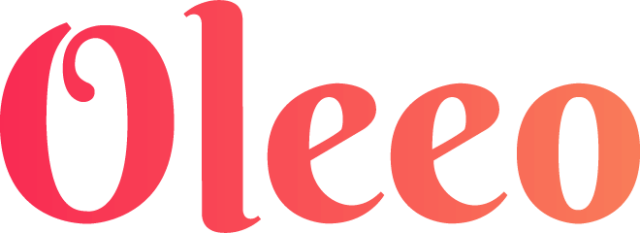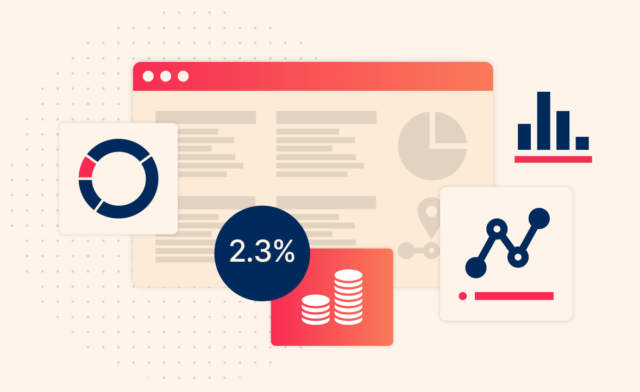Article
AI in Recruitment: A 2025 Guide to All You Need to Know About the Future of Hiring

AI in recruitment is no longer a future trend but a major advance that is here to stay. As recruitment software evolves alongside advancing technology, AI has become essential for optimizing Talent Acquisition. Its ability to analyze data objectively, enhance efficiency, and automate repetitive tasks makes it a powerful tool for hiring teams.
But how can you best leverage AI in recruitment to streamline workflows, and what challenges might arise?
In this article, we’ll explore how AI Recruiting software is transforming the hiring process and how you can integrate it into your strategy for smarter, faster hiring.
What is AI in Recruitment?
AI in recruitment simply means the application of Artificial Intelligence to the recruitment process. You may have heard of AI being used to screen resumes, but that’s not all it can do. In fact, there are applications of AI for recruiting talent at every stage of the procedure. The great boon this provides for HR teams is that they no longer have to shoulder the burden of plowing through mundane, repetitive tasks. AI can take care of those and, in doing so, streamline the recruitment workflow and free up human recruiters to focus on what they do best, such as building and developing relationships. The AI in talent acquisition market size has grown rapidly recently, according to The Business Research Company. It is predicted to grow to $1.35 Billion in 2025 at a compound annual growth rate (CAGR) of 18.9%, and $2.67 billion in 2029 at a CAGR of 18.6%. There’s only one conclusion: AI in recruitment recruiting is here to stay. In this article, we’ll take a look at why that is.The difference between artificial intelligence and machine learning
Artificial intelligence (AI) is a broad field of computer science focused on creating systems that can perform tasks requiring human-like intelligence, such as decision-making, problem-solving, and natural language processing. Machine learning (ML) is a subset of AI that enables systems to learn from data and improve their performance over time without being explicitly programmed. While AI covers a wide range of intelligent behaviors, ML specifically focuses on developing algorithms that recognize patterns and make predictions based on data.What Are the Benefits of AI in Recruitment?
Using AI in recruitment comes with several advantages. Here are just a few of them:1. Saves time
Applying Recruitment Technology to the process of finding new employees is a massive time-saver. It can automate many different tasks that would take a human team a long time to achieve. Unavoidable aspects of the recruitment process, such as screening resumes, booking interview slots, and scoring candidates against a role-related rubric, can all be done with a few clicks, thanks to AI.2. Reduces bias in the hiring process
AI for-driven recruitment can be a powerful weapon against unconscious bias in the workplace. Handled well, your AI software can help you reach out to a wider pool of potential applicants by formulating job ads that appeal to as many people as possible. Also, while the judgment of human recruiters may be subconsciously influenced by factors like a candidate’s personality or ethnicity, this doesn’t apply to AI as long as it’s well-trained.3. Improves communication
One of the problems with the traditional hiring process is that it’s pretty much impossible for HR teams to communicate fully with hundreds or thousands of applicants. This can lead to frustration if an applicant feels their messages are being ignored, and can have a negative impact on a company’s reputation. With an AI hiring procedure, that’s not a problem. You can use chatbots and other software to keep all candidates in the loop and well-informed through every stage of the process.How is the AI in Recruitment Process Changing Hiring
The most significant changes recruiters and HR professionals are seeing as a result of AI are to their quality of life. Automation is making manual tasks that used to take hours into almost instant processes. Beyond efficiency, AI for Candidate Experience is also improving how organizations interact with job seekers, ensuring a smoother and more engaging hiring journey. Let’s explore some of the most significant ways AI is making recruitment easier and more effective.It’s a fast filtering system
For mass recruiters, AI has been revolutionary in helping to sort and categorize thousands of individual applications in minimal time. A 2025 statistic says the global Average Time to Hire is 44 Days Now, artificial intelligence can help recruiters to sort job applications in a much shorter period of time by scanning electronic applications for keywords relating to industry experience, qualifications, and particular skills, and quickly eliminating irrelevant candidates. This means that the recruiter can maximize their time and efficiency for minimal effort.It can promote diversity and inclusion in the workplace
Diversity and Inclusion policies are now central to recruitment, and finding ways to implement diversity and inclusion policies is almost impossible without being influenced by unconscious bias to make unintentional subjective decisions. In the modern day, these policies are an essential part of establishing permanent change to the way we tackle diversity and inclusion in recruitment, so using artificial intelligence to make insightful and smart decisions without the issue of bias can allow companies to proudly remain inclusive. To do this, Oleeo’s Diversity Recruiting Platforms platforms can help to challenge bias by using the intelligent writing software to recognize gender-biased wording and remove it from job descriptions. This is based on several studies which found that women found jobs less appealing when descriptions contained more masculine terminology and were less likely to apply as a result.It can help you to connect and engage with applicants
Building a good relationship with applicants can be essential in attracting the best talent. Artificial intelligence can also be used through Recruiting Chatbots to connect with applicants. Additionally, they can help to simulate real life situations to test competence with addressing vital decision-making or conflict resolution. This can then produce clear and concise data for you to view and compare between candidates to find the best applicant for the job. Overall, the use of artificial intelligence within your recruiting process can help to boost the streamlining of hiring, shape your essential diversity and inclusion policies, and build relationships with prospective employees with ease.Use of AI in Recruitment
It’s time to explore some concrete examples of AI in recruitment. These are the tools and features that are available today and becoming ever more popular as the advantages of using them become clear.1. Screening
This is probably the aspect of AI-powered recruiting that people are most familiar with. Businesses can use Recruiting Software to screen resumes and job applications. The software does this by categorizing application documents into different sections. The exact categories used will vary depending on the employer’s preferences but would typically include details such as work experience, skills, and education. It then automatically searches for the specific keywords and phrases listed as relevant to the role. Screening can also be used to reach out to candidates whose details are on the system from a previous application. In the old days, being told, “We’ll keep your resume on file,” when you were unsuccessful may well have caused you to raise a cynical eyebrow. Nowadays, AI tools can scan through those resumes on file when new positions become available to check whether there are any potential matches. It’s likely that recruiting AI will be a significant feature of the hiring process in the coming years. In other words, candidates can expect more second chances and pleasant surprises.2. Chatbots
Our little friend the chatbot isn’t just handy for customer service. More generally, chatbots can be used for any kind of communication where you need to keep large numbers of people informed and updated on developments. That’s why they’re so useful in recruitment. Potential applicants can use them to ask questions about the company and the role they’re interested in. If they decide to apply, the chatbot can then keep them updated on the recruitment process. This is just one of many AI Use Cases in Recruitment that help enhance candidate experience while reducing manual workload for HR teams. This means that the HR team isn’t snowed under with questions they have to answer manually. As a result, they can focus on their core tasks without being distracted.3. Outreach
Another common use of AI in recruiting is outreach. This is particularly useful for larger organizations that have a high volume of candidates to consider. When you want to send out job offers or schedule interviews, you can use AI tools to make these happen automatically, reducing the burden of paperwork for the HR team.4. Text generation
We’ve already touched on intelligent writing tools, but it’s worth mentioning again. AI software can analyze the job descriptions you write and let you know if there are any biases in them. These tools can also generate text based on training documents. This means that if you feed a large number of previous job descriptions into them, they can write you new ones that align with your business goals.Examples of Successful AI Implementation in Recruitment
Many leading companies have successfully integrated AI into their hiring processes to improve efficiency, candidate experience, and decision-making. Here are two notable examples:- Unilever: Unilever transformed its hiring process by using AI-Powered Video Interviews and predictive analytics. By leveraging AI-driven assessments, the company reduced hiring time and increased candidate diversity, ensuring a more efficient and unbiased selection process.
- L’Oréal: L’Oréal implemented AI chatbots to Streamline Candidate Engagement and scheduling. They used AI For Candidate Experience, providing instant responses, improving efficiency, and allowing recruiters to focus on high-value interactions.
What Are the Challenges of AI Recruitment?
At this point, we introduce a note of caution. Yes, AI talent acquisition has a lot to recommend it, but there are a few potential drawbacks to AI, too:It can learn and replicate human biases
One of the most important ethical considerations when it comes to artificial intelligence in recruitment is how to deal with biases that already exist in your system. The reason this can pose a problem is that one of the ways AI operates is by looking for patterns in existing data. This means that if the AI software is trained on information that already has unconscious biases in it, it can pick up on them and integrate similar biases into the data it generates. For example, if there’s an unconscious bias discriminating in favor of candidates educated at a particular university, the AI may copy that behavior. The best way to guard against this from happening is to use a trusted provider. Experienced developers of AI recruitment tools such as Oleeo are aware of the issue and provide the support that mitigates it.It can be less accurate
The AI tools are only as good as the information supplied to them. Because they look for specific keywords during the screening process, any applicant using slightly unusual synonyms for those keywords could be out of luck. On the other hand, some candidates may tweak their applications to include keywords that aren’t relevant to their experience just to try to manipulate the process to get past the AI screening stage and into the Interview Process. Either way, it’s possible for errors to creep in – for some good-quality candidates to be unfairly rejected or for lower-quality ones to be unfairly advanced to the next stage. This is why it’s vital to remember that AI recruitment software is a tool rather than a total human replacement. It’s crucial that your HR team double-check its suggestions before moving on to the next phase.It needs lots of data for effective screening
To get AI tools to work well, you need to provide them with training data. The more data you provide, the more accurate the results will be. This isn’t a problem if you’re dealing with High Volume Hiring, but if that’s not the case, it can restrict the tools’ usefulness, at least for screening. However, this is really just a question of using the right AI feature for the right task. Even if you’re recruiting for a specialized position that won’t attract many applicants, you can still use AI to find appropriate candidates to reach out to by selecting more appropriate training data from other sources.Best Practices for Integrating AI Tools into Your Existing Recruitment Workflow: A Quick Checklist
You need a strategic approach to successfully incorporate AI into your recruitment process. Here are some best practices to ensure an easy integration:- Define your goals: Identify the specific challenges AI can address, such as improving candidate sourcing, automating screening, or enhancing engagement.
- Choose the right AI tools: Select AI recruitment solutions that align with your existing HR tech stack and meet your organization’s unique hiring needs.
- Balance automation with human touch: Use AI for efficiency but maintain human oversight to ensure a personalized and fair candidate experience.
- Ensure ethical and unbiased AI usage: Regularly audit AI-driven decisions to detect and mitigate biases in screening and selection processes.
- Train your HR team: Provide training on how to use AI effectively, interpret AI-driven insights, and make informed hiring decisions.
- Monitor and optimize performance: Continuously analyze AI’s impact on your recruitment workflow and refine strategies for better results.



